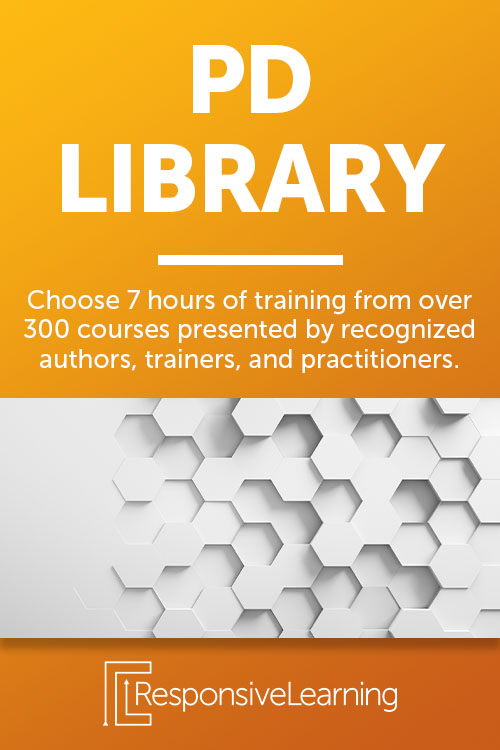Have you ever looked in the fridge for something to eat even though you weren’t really hungry? Perhaps you were just thirsty, frustrated, or tired. Similarly, boredom can often be confused with about 50 other emotions. As an educator, it’s crucial to identify and distinguish between what students are actually feeling when they say they’re “bored.”
Boredom vs. Emotions
Boredom is often the result of misidentified emotions. If a student is feeling left out or like they are unable to connect with others, they may incorrectly label that emotion as boredom. As Lisa Van Gemert explains, “All of our pedagogy rests on not being boring because boredom is the opposite of engagement.”
Renowned educator and expert in gifted education, Lisa Van Gemert sheds light on this sensitive topic. Teachers can take it personally when someone claims their classroom instruction is boring. In her course, Going Deeper with Beyond Boredom, Lisa addresses these issues and provides insight as well as clarity on what can be done to prevent boredom. She has even compiled a “boredom-proof classroom checklist” based on her research and experience.
“The more specific we can be about it, labeling the exact emotion, the easier and better we will be at mitigating it, addressing it, and preventing boredom.” Lisa recommends teaching students how to properly label their emotions and giving them the language they need to explain how they’re feeling.
Self-Regulation Strategies
Self-regulation is an important life skill that children need to learn before adulthood. Lisa says, “There’s a connection between boredom and a lack of self-regulation.” This falls into one of the five domains of emotional intelligence. Self-awareness encompasses how mindful you are of your emotions and their effect on others.
Lisa explains self-regulation as “being able to recognize when it’s appropriate to display that emotion and when it might do more harm than good.” Knowing the proper time and place to show your emotions is critical. This behavior can be developed over time so that individuals with enhanced self-regulation can successfully manage their emotions and prevent any negative feelings of boredom.
Students with attention-deficit/hyperactivity disorder (ADHD) frequently have complaints of boredom because of their inability to self-regulate their attention, physical movement, etc. Lisa recommends fostering self-regulation for students with ADHD by helping “the student identify what aspect of self-regulation is getting in their way at that moment.” For example, if they struggle with impatience, you can teach them to practice mindfulness meditation. Be clear and precise in pinpointing exactly what’s causing their boredom.
Preventing Boredom

You’re less likely to be bored at work if you feel that what you’re doing is meaningful and valuable. The same concept applies to students in the classroom. Give them the proper motivation and explain the importance of what they are learning about so they’re continuously engaged. When you make an effort to be more engaging with them, students will thrive.
Maintain open communication with parents about how much time students are spending on devices outside of school. Boredom can arise in the classroom if they develop a dopamine dependence on their electronic devices. Lisa addresses how “the brain wasn’t designed to be shunted that much dopamine.”
Another essential factor to consider is how you respond to student effort and the timeliness of your feedback. Lisa explains “that is also playing a role in our students’ perception of the level of engagement or boredom in our class.” Reciprocate the amount of feedback and engagement that you expect from your students. When you do this, you’ll find it’s much easier to prevent boredom from occurring in the first place.
Interested in learning more about how you can prevent boredom in your classroom? Explore the course demo on Going Deeper with Beyond Boredom today!

